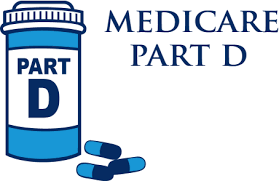On March 28, 2024, the U.S. Departments of Labor, Health and Human Services, and the Treasury (Departments) released a final rule on certain types of health coverage that are not subject to the Affordable Care Act’s (ACA) consumer protections, namely short-term, limited-duration insurance (STLDI) and fixed indemnity coverage. This rule finalizes some of the changes included in a proposed rule from July 2023.
The Departments are making changes to STLDI and fixed indemnity coverage to help consumers distinguish them from comprehensive health coverage and increase consumer awareness of coverage options that include the ACA’s consumer protections. These protections include, for example, the prohibition of discrimination based on health status, the prohibition of preexisting condition exclusions, and the prohibition of lifetime and annual dollar limits on essential health benefits.
STLDI
STLDI is a type of health insurance coverage designed to fill temporary gaps in coverage when an individual transitions from one plan or coverage to another. STLDI is specifically exempt from the definition of “individual health insurance coverage” and, therefore, is not subject to the ACA’s requirements for comprehensive coverage.
Currently, STLDI is defined as coverage with an initial contract period of less than 12 months and a maximum total duration of up to 36 months, which includes renewals and extensions. Effective for coverage periods beginning on or after Sept. 1, 2024, the final rule limits the length of the initial contract period to no more than three months and the maximum coverage period to no more than four months, taking into account any renewals or extensions.
In addition, the final rule:
- Prohibits a practice known as “stacking,” where the same insurer issues multiple STLDI policies to the same policyholder within a 12-month period; and
- Amends the consumer notice requirement to further clarify the differences between STLDI and comprehensive coverage and identify options for consumers to obtain comprehensive coverage. The notice must be prominently displayed on the first page of the policy, certificate or contract of insurance—including for renewals and extensions—and included in any marketing, application and enrollment (or reenrollment) materials.
The final rule also includes a reminder that coverage sold to individuals through a group trust or association, other than in connection with a group health plan, is not group coverage for purposes of federal law and must meet the federal definition of STLDI or it is subject to the federal consumer protections and requirements for comprehensive individual health insurance coverage.
Fixed Indemnity Excepted Benefits Coverage
Certain categories of coverage—called “excepted benefits”—are not subject to certain federal consumer protections, including the ACA’s requirement for comprehensive coverage. Fixed indemnity coverage is exempt from these protections because it is designed to provide a source of income replacement rather than full medical coverage.
Effective for plan years beginning on or after Jan. 1, 2025, the final rule requires a consumer notice to be provided when offering fixed indemnity excepted benefits coverage in the group market to ensure that consumers can distinguish between this coverage and comprehensive medical coverage. Health plans and issuers must prominently display the notice in marketing, application and enrollment (and reenrollment) materials.
In the July 2023 proposed rule, the Departments proposed new standards regarding the payment standards and noncoordination requirement for fixed indemnity excepted benefits. The Departments are not finalizing these proposed standards at this time, but they intend to address the issues in future rulemaking after additional study and consideration.
Tax Treatment of Fixed Indemnity Health Coverage
In the July 2023 proposed rule, the Departments proposed to clarify that payments from employer-provided fixed indemnity health insurance plans are not excluded from a taxpayer’s gross income if the amounts are paid without regard to the actual amount of any incurred medical expenses and where the premiums or contributions for the coverage are paid on a pre-tax basis. This rule also proposed to clarify that the taxpayer must meet substantiation requirements for reimbursements for qualified medical expenses from any employer-provided accident and health plan to be excluded from the taxpayer’s gross income. To provide more time to study the issues and concerns raised by commenters, the Departments are not finalizing these proposed changes at this time.
For more information feel free to contact a Lead Consultant at Inspire Wokforce.





